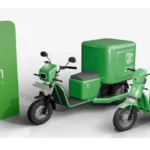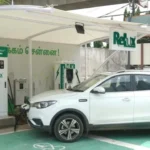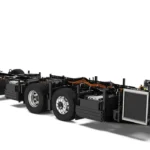EzUrja Power Hub in Kolkata will make history. By launching India’s biggest and the world’s second-largest EV charging hub. The ambitious project, led by EzUrja. It will have 300 chargers and is likely to change the EV ecosystem in the city. The hub is likely to go on stream by August 2025, coinciding with Durga Puja festivities.
EzUrja Power Hub: Project Highlights
- Location: The hub is under development in South Kolkata’s Thakurpukur. On a two-acre land that was earlier owned by PSU Andrew Yule & Co.
- Capacity: It will have 300 chargers. There will be fast chargers with a capacity of up to 120 kWh. Approximately 20% of these will be fast chargers. Will serve private as well as commercial EVs.
- Energy Efficiency: The hub will be powered at a load of 6 MW by solar panels and energy storage devices. A microgrid installation will provide around 40% of its energy requirement.
- Cost and Timeline: The cost of the project is estimated to be ₹7.5 crore. Completion is expected in August 2025.
Driving E-Mobility in Kolkata
The major beneficiary of this hub will be Snap-E. Kolkata’s electric app-based taxi service. Having a fleet of 300 electric taxis. Snap-E plans to use this infrastructure to scale up its operations and encourage sustainable urban mobility.
The project’s significance was emphasized by Ashhok Kapoor, Managing Director of EzUrja: “This is our first EV charging center project. It reflects our commitment to developing sustainable infrastructure for India’s expanding EV sector.”
Industry Impact on EzUrja Power Hub
The setting up of this hub is a giant leap for India’s green mobility transition. Not only does it cater to the increasing need for EV charging infrastructure. It also meets national aspirations for curbing carbon emissions. EzUrja is also working with the West Bengal State Power Department to create more EV charging stations on the Kolkata-Asansol highway. They will be exclusively for electric buses, adding to the e-mobility infrastructure of the state.
ELCTRIK Speaks
Kolkata is at the vanguard of India’s e-mobility revolution because to this project. With its emphasis on sustainability, local production, and mass-scale infrastructure. The project serves as a benchmark for other cities looking to implement green transport solutions. As India speeds up its transition to electric vehicles. Initiatives such as this are important in establishing consumer trust and driving mass adoption.







